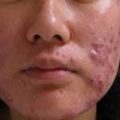Children and people with ASD or Autism often repeat behaviors and have narrow, obsessive interests. These types of behavior can affect eating habits and food choices, and this can possibly lead to the following health concerns.
1. Limited Food Selection/Strong Food Dislikes
Someone with autism may be sensitive to the taste, smell, color and/or texture foods. They may limit or totally avoid some foods and even whole groups of foods. Common dislikes include fruits, vegetables and slippery, soft foods.
2. Not Eating Enough Food
Kids with autism may have difficulty focusing on one task for an extended period of time. It may be hard for a child to sit down and eat a meal from start to finish.
3. Constipation
This problem is usually caused by a child’s limited food choices. It can be remedied through a high-fiber diet, plenty of fluids and regular physical activity.
4. Medication Interactions
Some stimulant medications used with autism, such as Ritalin, lower appetite. This can reduce the amount of food a child eats, which can affect growth. Other medications may increase appetite or affect the absorption of certain vitamins and minerals. If your child takes medication, ask your health care provider about possible side effects.
Understanding these facts, you should try to provide a balanced diet to autistic child. These desires and aversions related to different food items and other gastric symptoms also become important for better homeopathic medicine for autistic child.










